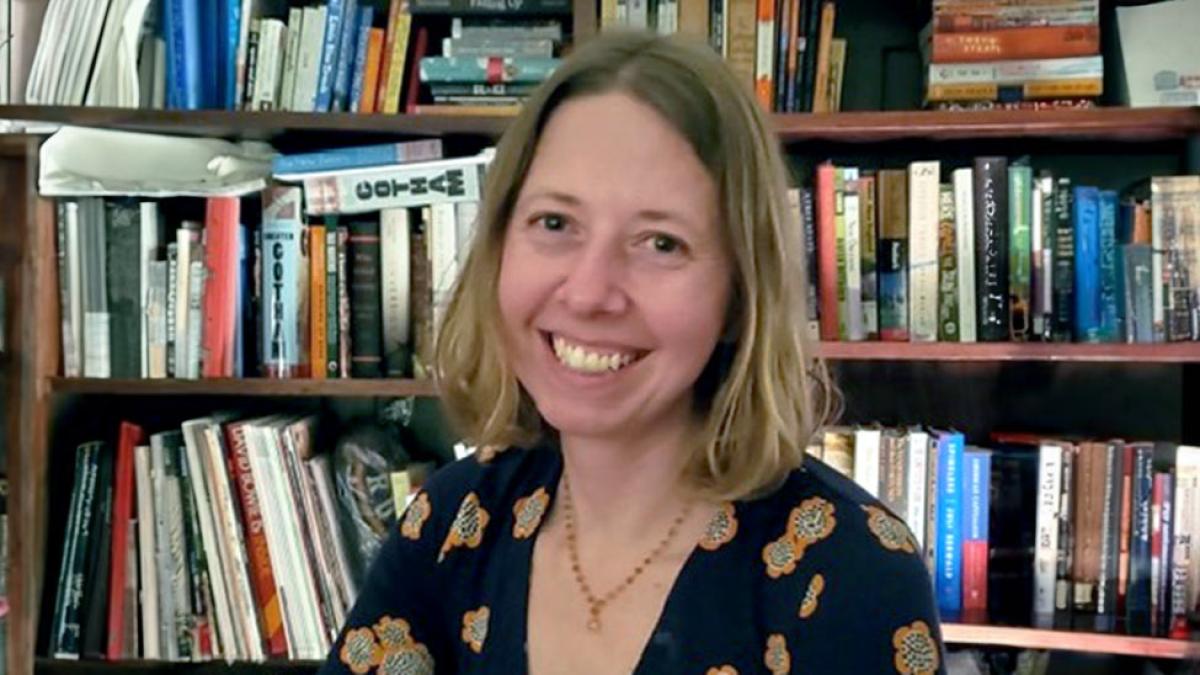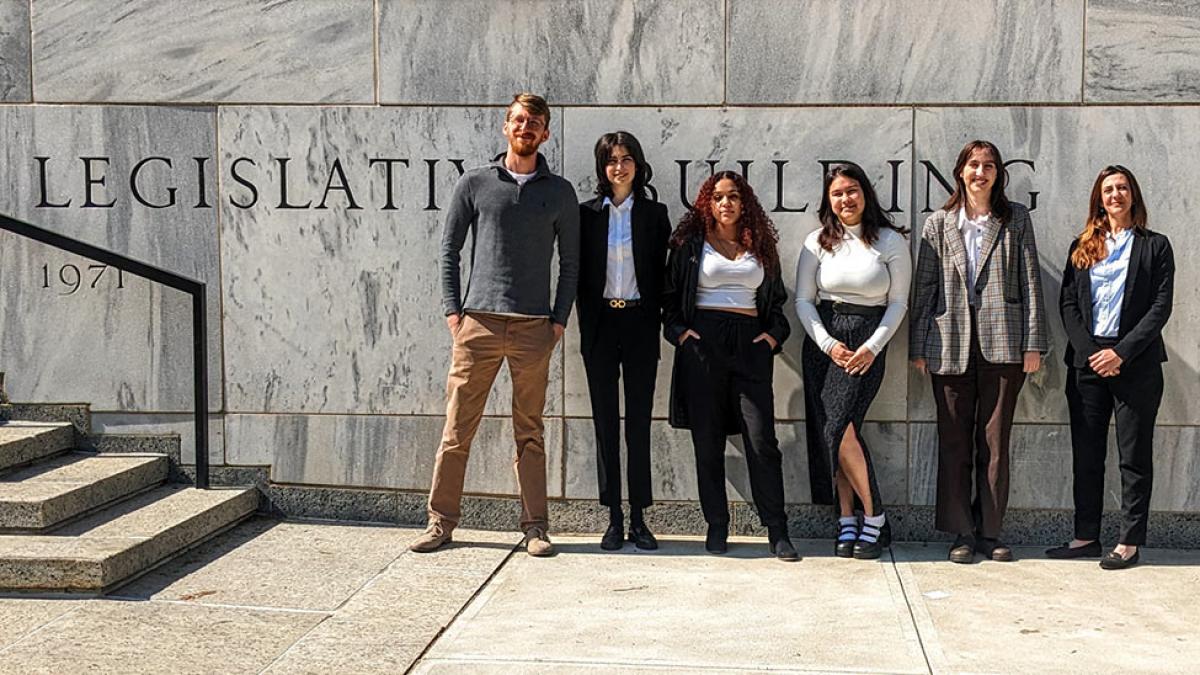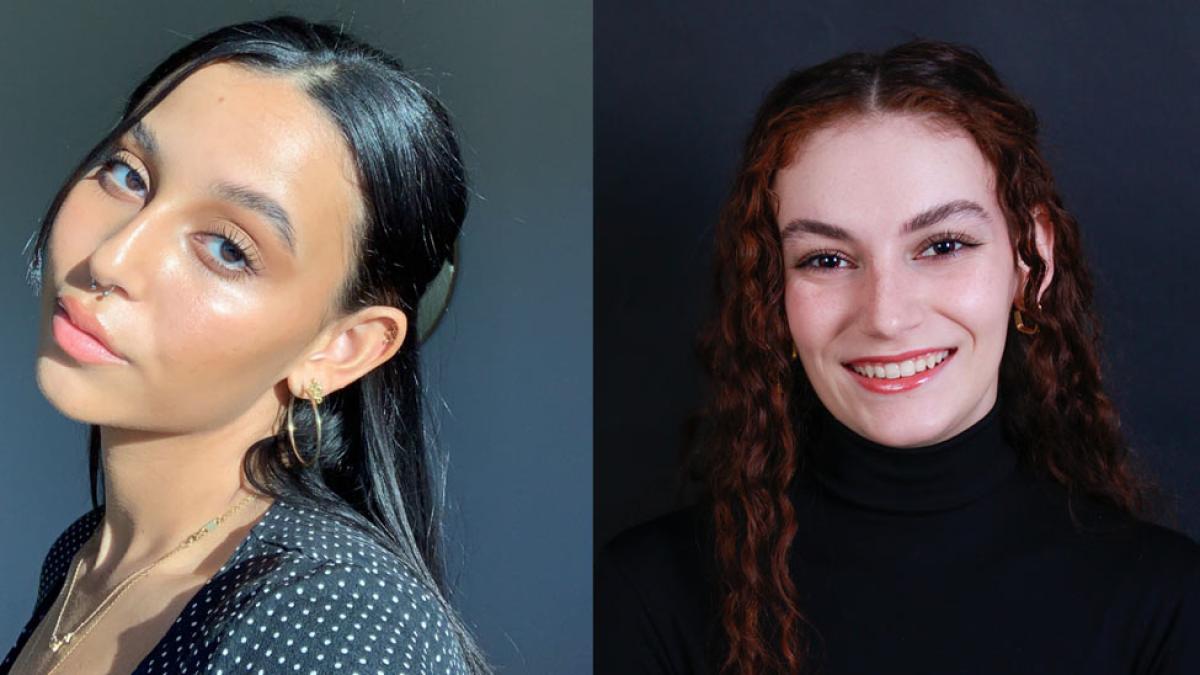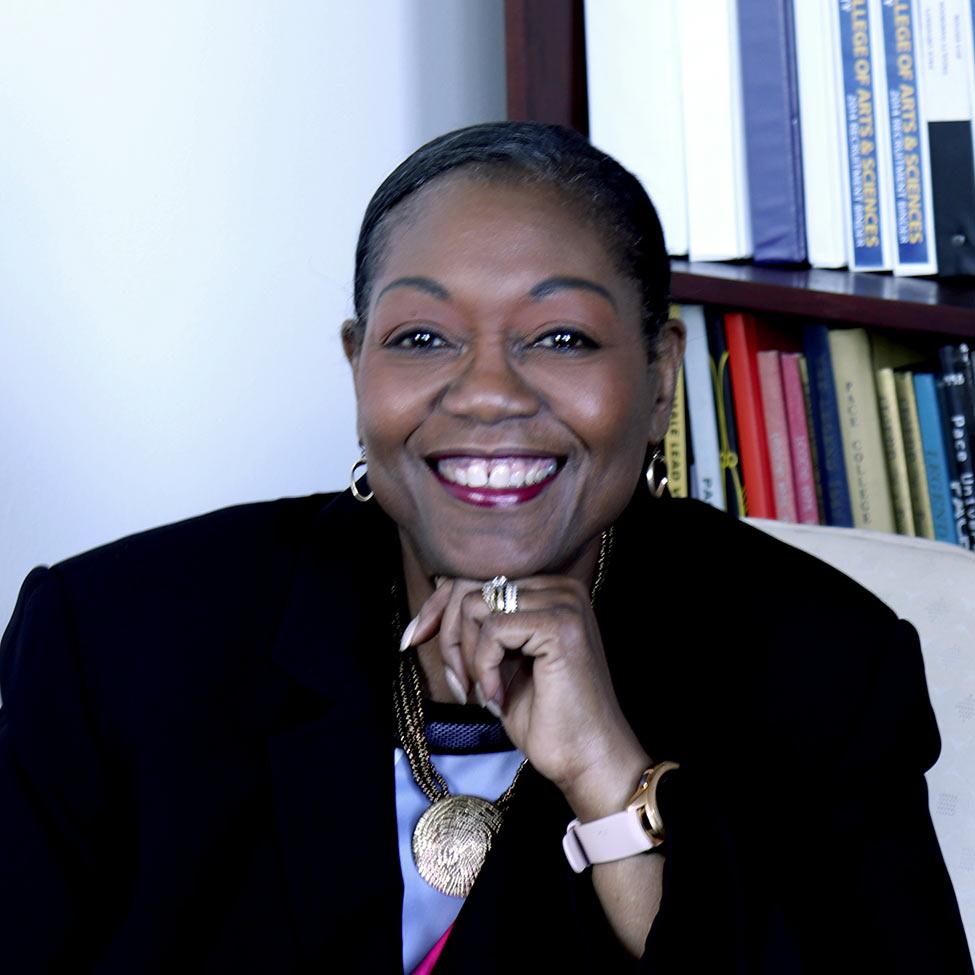
Dean Tresmaine R. Grimes, PhD, is Honored as National Jefferson Award Finalist
In recognition of her exceptional service to her community, Dean Tresmaine R. Grimes, PhD, has been named a national finalist for the Jefferson Award, an honor referred to as the “Nobel Prize of service.”
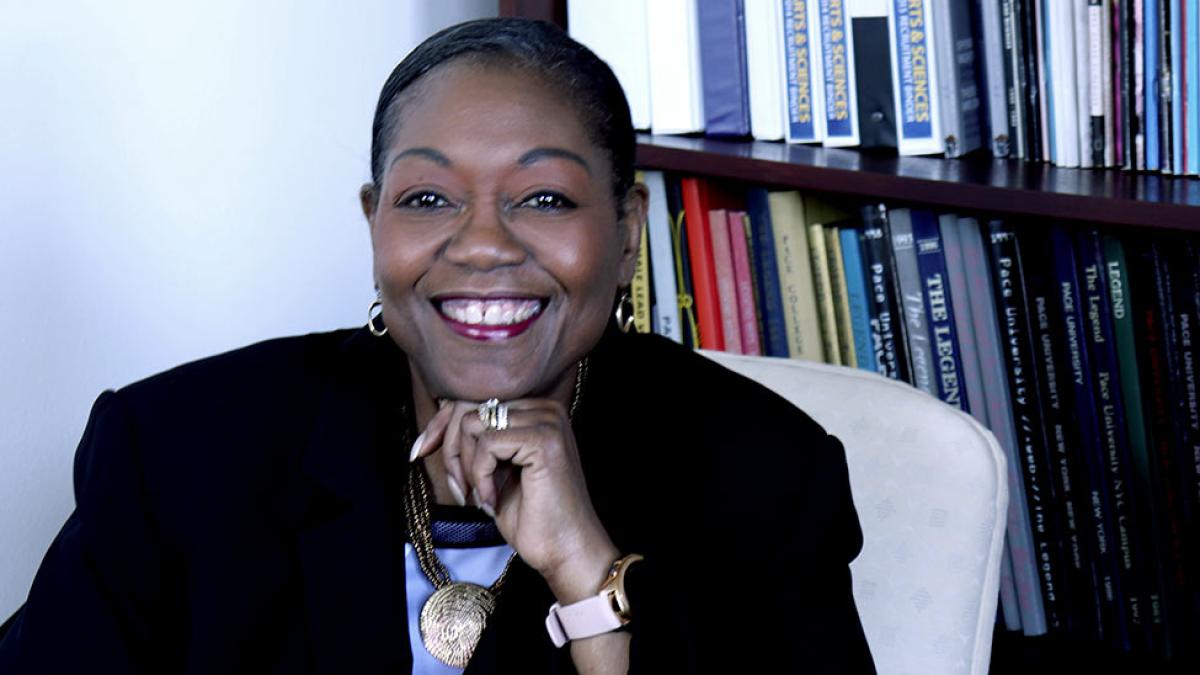
In partnership with the Jefferson Awards Foundation, Pace engages in meaningful public service and celebrates those who improve the quality of life in their communities with Jefferson Awards for Public Service and Multiplying Good. In the 2022–2023 academic year, half of the Bronze Medal Award winners at Pace were from the Dyson College of Arts and Sciences. And this year’s Jefferson Award Finalist, selected by Multiplying Good's board of directors to represent Pace at their national ceremony in October, is Tresmaine R. Grimes, PhD, Dean of the Dyson College of Arts and Science and School of Education. Congratulations to her and all our winners!
We sat down with Dean Grimes to learn more about her volunteer work.

How is this recognition meaningful to you?
This is a tremendous honor. I lived most of my life with the idea that you are supposed to serve others or do something to give back. And you don't do those things thinking that someone is going to recognize you. That's sort of the whole point; giving back to others in a way that you're not doing it for yourself, but to basically bless someone else's life. So, this means the world to me that someone would think that the things that I do are worth recognizing.
What aspect of your community and public service are you most proud of and why?
Helping young people or children has always been part of my early life. Before I could even work legally, I was helping to take care of younger kids. By the time I got to college, I tutored as part of my work-study, and that felt good to me. About a decade ago, I established a nonprofit that helps the faith community understand and get to the truth of domestic violence. I’m proud of that work and the fact that we have raised money to help people coming out of those situations and have even been recognized for this by the Robert Wood Johnson Foundation. On the academic side, I’ve enjoyed being a faculty advisor and mentor to my students since my first teaching days. When my students, who are now professionals with their own lives, still keep in touch, that’s a nice reminder that what I did was worth it. My sorority, Delta Sigma Theta, is dedicated to serving the public and community. Whether it is feeding the hungry or raising money for scholarships, those things continue to mean the world to me now and in my own personal life.
As dean of Dyson College and the School of Education, what have your observations been of our community and Pace at large regarding the importance of public service?
One of the nicest things about being at Pace is seeing what people are doing outside of the classroom, and both Dyson and the School of Education (SOE) have tremendous faculty and student involvement in community service. We’re working very hard to make sure that our students have that civic engagement experience outside of the classroom. I see faculty involved in a lot of community work, as well: artists and writers taking their classes into the community, for example, and making an impact there. So, we have a lot of really exciting people in both Dyson and SOE, and I will also say, the Sands College of Performing Arts, because our faculty there are also involved in the larger community. And so, everybody has their niche, and their way to connect. It’s also exciting to see us writing grants to try and connect with our folks in New York City, in our neighborhoods, and in Chinatown. Just a whole lot of exciting things. I’m impressed.
What are the things that you see are missing in the world? Sometimes, we are looking for other people to fill gaps, but maybe you're the only one that sees that.
Who inspired you to volunteer?
I think because I grew up in a faith community, there was always the assumption that you don’t just sit around, that you give. Certainly, my mom and grandmother were always giving. My grandmother was a wonderful cook; my grandparents were immigrants from the Caribbean, and my grandmother would make traditional foods and give them to people at Christmas instead of buying gifts. My mom was a musician and would play in church and for people at their weddings, and my mother's brother was a social worker, helping people make positive changes in their lives. They weren’t looking for anything in return. So, I grew up around that.
You also never know who you are an inspiration to. When I was planning my wedding more than 39 years ago, I asked the mother of a little girl in my faith community if she could be a flower girl. The mother said ‘yes, of course,’ that ‘she looks up to you’ and ‘wants to be like you.’ That was the first time someone had said that to me. If you look at statistics, I wasn't supposed to be anything: where I was raised, divorced parents, my mom was a single mom and not wealthy. But that's not the way it turned out.
Do you have any advice on first steps, for those interested in making a positive impact and improving the life of others?
Follow your heart. What are the things that interest you; what is your passion? Also, what are the things that you see are missing in the world? Sometimes, we are looking for other people to fill gaps, but maybe you're the only one that sees that, right? So, start small with the things that you notice are missing, and you don't have to do this by yourself. Partner with others; they will be happy to have you, and you can learn from them, too. I attended workshops about domestic violence and human trafficking through Not on My Watch, a training program for faith leaders. It was something I was grateful to be a part of, because I learned a lot about human trafficking, areas where girls were at risk, and how to spot this in our own communities. So, begin to think about how you can be a positive impact. There are so many ways you can make a difference.
What are you most excited about in the future?
I think, in general, I’m excited about a lot of things. I'm excited about continuing to make meaningful connections with other community organizations that are focused upon the things that Pace has already had success with. I’m also excited about the Jefferson Awards Ceremony in October and making connections with other people who are doing amazing things in their communities. You know, I want to live long enough to see what happens next and to determine how I can continue to be of help to others.
Dyson Digital Digest: Summer 2023
As the newly appointed director of experiential learning and the Pace Path, Associate Professor of English Kelley Kreitz, PhD, is exploring how Pace’s approach to hands-on pedagogy enhances student success and sets the University apart.
The Animal Policy Project, an initiative through the Environmental Studies and Science department, is giving students first-hand opportunities to advocate for legislation surrounding animal issues.
As the Class of 2023 prepares to cross the stage on May 15 at the USTA Billie Jean King National Tennis Center, graduating students in the arts and humanities shared their plans for the future and reflected on their most memorable moments from their time at Pace.
Driving the Future of Occupational Therapy
Occupational Therapy faculty and students collaborate with local rehabilitation center to create Pace U Drive driving simulator.
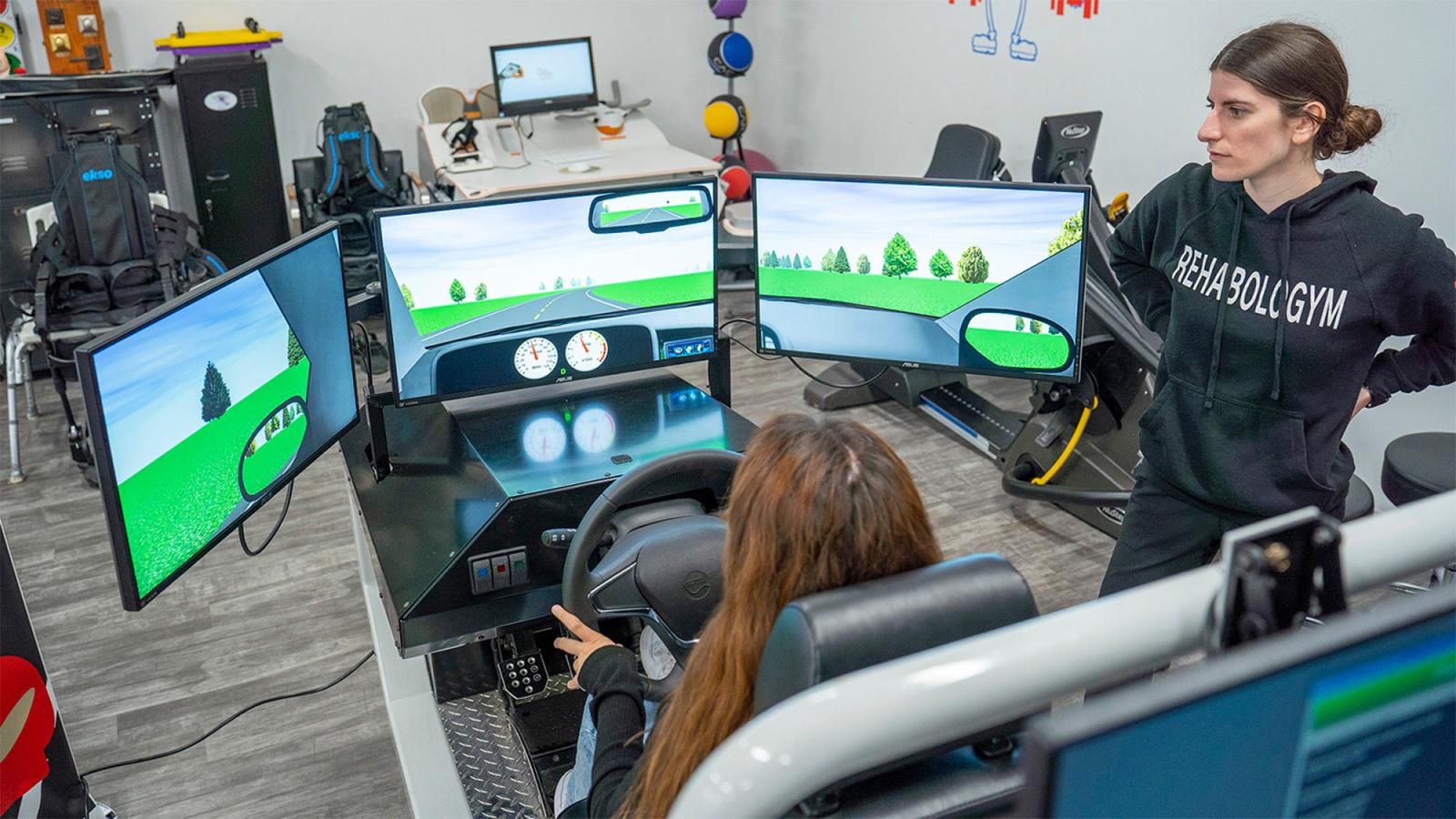
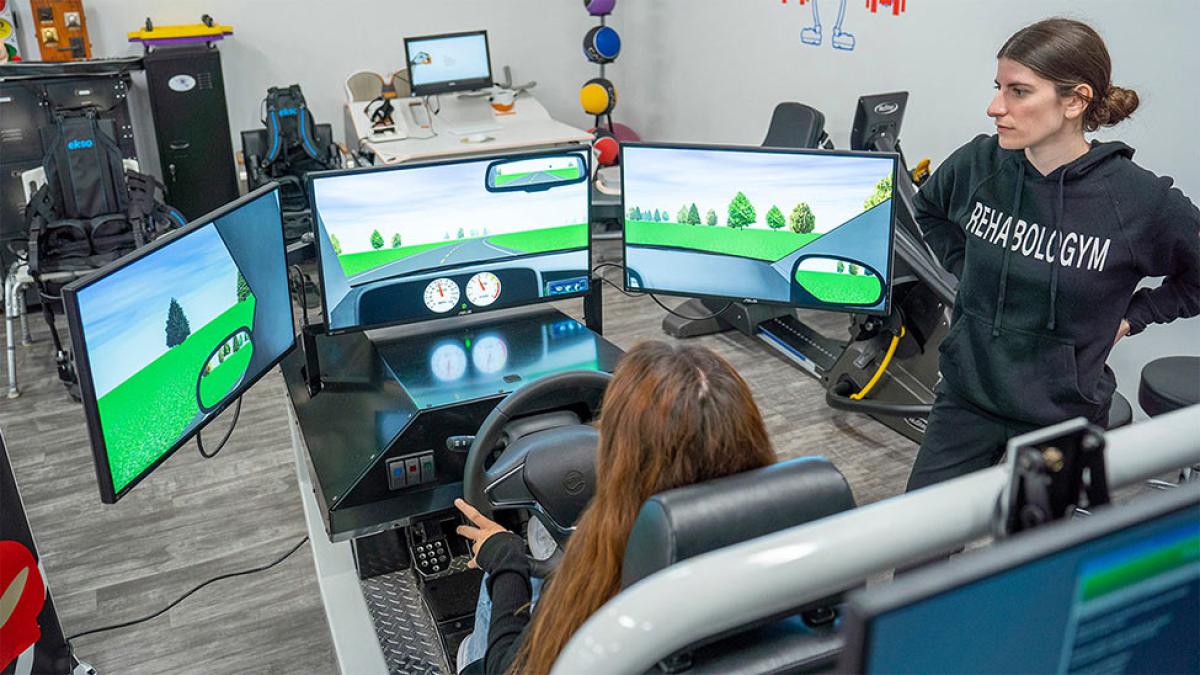
Pace University’s Occupational Therapy, MS program (MSOT) and Rehabologym are happy to announce a partnership for community-based learning and service. Rehabologym is a unique Neuro-Robotic Outpatient Rehabilitation Center for pediatrics and adults in Tarrytown, NY that utilizes state of the art technologies and comprehensive methodologies for neurological occupational therapy (OT), physical therapy (PT), speech therapy (SLP), and certified personal training (CPT) to restore and maximize health and overall well-being.
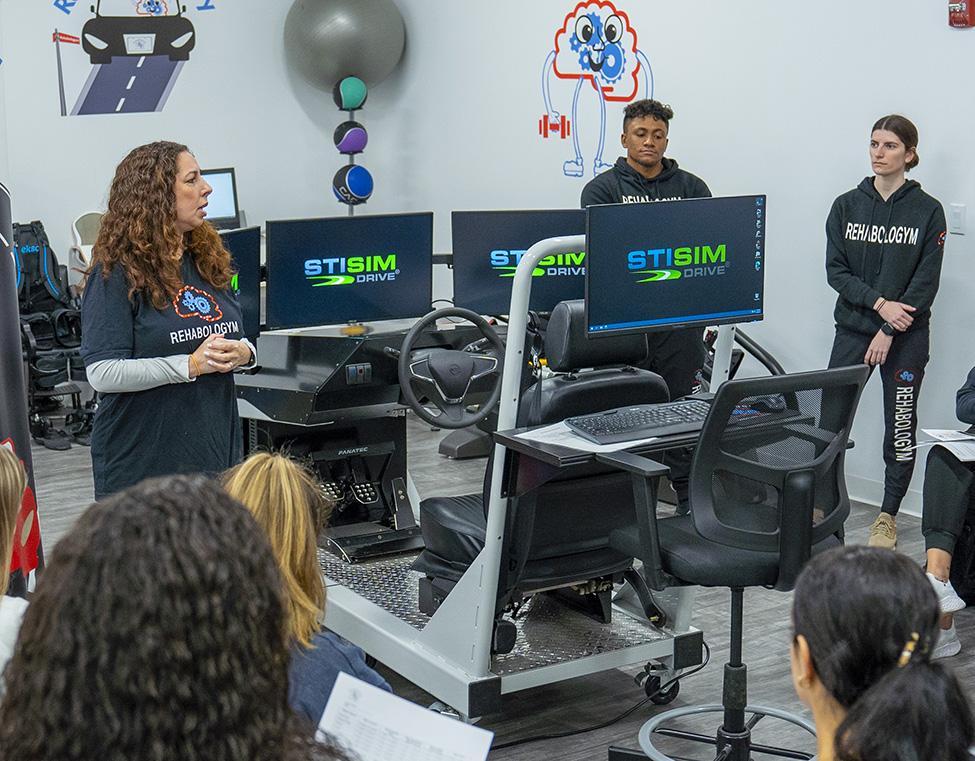
In 2020, Pace University purchased the STISIM Drive state-of-the-art driving simulator to support the learning of the occupational therapy students. Students from the MSOT 2022 graduating class analyzed the usage of the equipment in various coursework. They established a team of students who worked tirelessly on researching a community-based site that complimented the Pace University MSOT mission and vision and quickly realized how beneficial this piece of rehabilitation assistive technology could be to the Pace, Pleasantville, and surrounding communities. Through their research, they identified Rehabologym as a potential partner.
Students and faculty met with leaders from Rehabologym and developed an off-the-road driving evaluation that incorporates the STISIM Drive simulator, establishing U Drive Pace OT! They also developed protocols for a driver rehabilitation program to assess and address limitations identified on clinical and driving simulator evaluations. Their efforts help provide many individuals who suffer from neurological impairments the opportunity to regain independence behind the wheel. People from across the United States and other countries travel to the Rehabologym clinic to utilize this state-of-the-art technology, providing the MSOT students with exposure to various neurological diagnoses from all over the world.
The Rehabologym team consists of seasoned and skilled occupational therapists, physical therapists, speech therapists and neurologically trained certified personal trainers who have decades of experience with all diagnostic populations.
Avrielle Peltz, MA, OTR/L, chief operating officer and clinical director of Rehabologym said, “We are thrilled to partner with Pace University. It will be an honor to work collaboratively with the MSOT program to mentor the next generation of competent clinicians and potentially create innovative programs to be able to give back to the community and to individuals in need.”
This partnership creates next-level experiential learning with many benefits, including enhancing the student experience by working with actual patients using state-of-the-art neurorehabilitative technology; providing access to expert community educators who share their expertise with the Pace University MSOT students; and creating opportunities for collaborative research.
“Rehabologym gave us a unique opportunity to connect with our community and provided invaluable, hands-on experience at a neuro-robotic rehabilitation center," said MSOT graduate, Natalie Calianese ’22.
“Our MSOT students will have the privilege of participating in clinical experiences under the supervision of experts in neuro-robotic and driving rehabilitation while at the same time addressing the needs of the local community,” Supawadee Cindy Lee, PhD, MS, MA, OTR/L, SIPT, founding program director, department of Occupational Therapy, Pace University. “We are excited about the future of our Occupational Therapy program.”
Pace University Women's Lacrosse Team Invited to White House to Celebrate NCAA Championship
The Pace University women's lacrosse team is being invited to the White House to celebrate their NCAA national championship. The Setters will be among NCAA championship teams from across the country being recognized on the South Lawn. It's part of College Athlete Day at the White House next Monday. Pace University defeated No. 1 ranked West Chester University 19-9 last month to win the first title in program history.
Are There Any Protections For Menopausal Employees?
For a closer look at this, KCBS Anchor Jennifer Hodges spoke with Emily Gold Waldman, Professor at Pace Law School with a focus on employment discrimination and feminism. Haub Law Professor Emily Gold Waldman speaks with KCBS Radio about how the law overlooks women who are working while experiencing menopause.
Cooking For Combat Readiness: A Guide to Basic Cooking Techniques for Military Enthusiasts and Veterans
CHP Professor Christen Cupples Cooper discusses cooking techniques for veterans and enthusiasts:
“Cooking meats above 300°F, which usually results from grilling or pan frying, can form compounds called HCAs (heterocyclic amines) and PAHs (polycyclic aromatic hydrocarbons) that may be harmful to human DNA.” While these findings require further research, Cooper explains that high temperatures may activate certain enzymes and increase cancer risk. She then has these pieces of advice: “Avoid cooking foods for any length of time over an open flame or hot metal surface, turn meat frequently during cooking, and cut away charred portions of meat.”
Kakhovka Dam Destruction: Ukrainian, Groups Demand Creation Of Law Against Ecocide
Professor Nicolas A. Robinson is part of over 100 International organizations and individuals issuing a demand for creation of an international law against ecocide after the horrific Russian destruction of the Kakhovka hydroelectric plant and dam in Ukraine last week, EnviroNews Nigeria reports.
New Program Brings Puppy Fostering To N.Y. Incarcerated Young Adults
Dyson Professor Kim Collica-Cox and the her program Puppies on the Block, an extension of the Parenting, Prison & Pups Program, will soon extend to more incarcerated young men ages 18 to 25, Corrections1 reports.
Montana’s Pro-Environment Constitution Goes On Trial
Professor Katrina Kuh speaks with E&E News about Montana’s pro-environment constitution trial:
“We definitely looked to Montana as a model,” said Katrina Fischer Kuh, a law professor at Pace University, who chaired a New York bar association task force that examined constitutional environmental issues.
Ny Bill Could Derail Plans to Create Hasidic Village in Orange County. Here's How
Skoufis said earlier that the bill emanated from a recent report by Pace University's Land Use Law Center on reforming the state's village formation rules. Senate Majority Leader Andrea Stewart-Cousins of Yonkers requested that study, and sponsored a separate bill that would create a state commission to make decisions about new villages.
Concerns With Proposed Village Of Seven Springs Sparks Bill To Change State Incorporation Law
Haub Law students who completed a study on New York’s rules for creating villages are mentioned in News12 as their work and findings are being utilized by state lawmakers who are interested in reforming the law:
The state senator said he was “buoyed by findings of a recent report from Pace University’s Elisabeth Haub School of Law on the need to reform and refine the process of village incorporation.”
